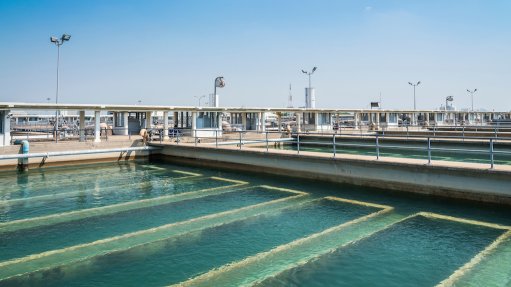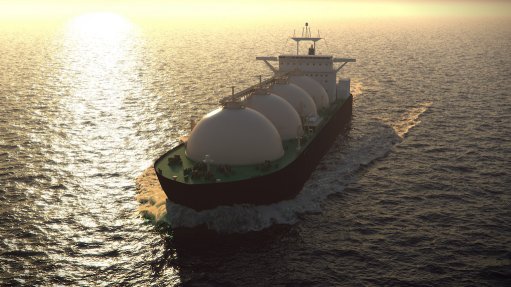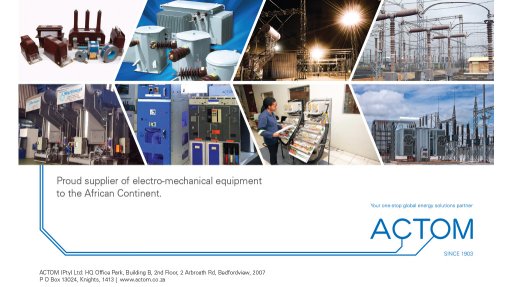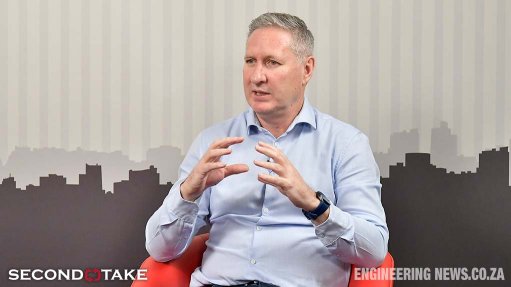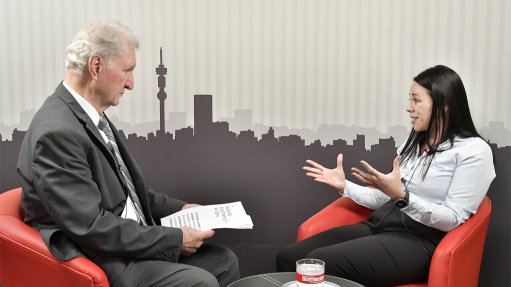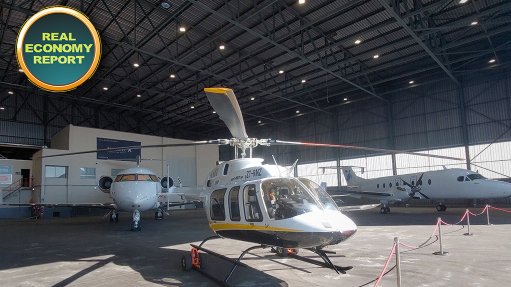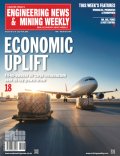Global warming affects how we build roads
This article has been supplied.
By Professor Mohamed Mostafa Pr Eng
The African continent is urbanising at an accelerated pace, and this evolution has profound consequences. Mobility is fundamental to urban living. In theory, cities create an enabling environment for jobs, services, education, entertainment, goods movement and providing access to emergency services. As sometimes described, road transport is the equivalent of a "circulatory system" for the movement of goods and people.
Like any circulatory system, it is complex. Attempts to improve the system will require the participation of several stakeholders. It will, moreover, require an acknowledgement and examination of the threats and impacts of global warming and climate change to the system (.i.e. the structure) and how we use it (i.e. the function).
The current urbanisation trend adds to global warming for various reasons. Amongst them, transport contributes 25% of global carbon emissions, of which road transport contributes more than 75%. As a result, urban areas currently contribute more than 70% of greenhouse gas (GHG) emissions.
How can engineers, urban planners and other stakeholders contribute to a sustainable transportation system, especially given the scope and breadth of urbanisation? The answer is, again, complex. It's not, for example, simply a matter of providing extensive, electrified public transport in cities. Rather, a look at road surface layers informs one change that is needed. For instance, potholes in South Africa are estimated to cost more than R200 billion to fix. So, while fixing the roads is essential, we must shift our focus to fixing how roads are built using a more holistic approach.
Floods and heat waves across the globe have catastrophic impacts on road transportation, incurring massive costs in maintenance, delivery, traffic disruptions and rebuilding. In April and May 2022, flood damage to road infrastructure in KwaZulu-Natal (KZN) was assessed to be roughly R6 billion. This included an essential artery, the N2, which is still experiencing daily traffic back-ups of more than 8 km, seven months later. In Europe, roads buckled under the 2022 summer heat wave, making them impassable in parts and increasing traffic congestion.
There is no question of the urgent need for climate-resilient road structures, but there is doubt about how quickly they can be implemented. As the use of asphalt and bituminous products for road surfacing is common in South Africa, there is a need to look deeper into the performance of these materials. South Africa has roughly 160,000 km of paved roads out of a total road network size of 750,000 km.
The parameters of climate change effects used in assessing the pavement requirements often need to be considered in design and construction methods. For example, many existing structures did not factor in the degree of global warming experienced today and an estimated 35% of the pavements materials used (globally) were unsuited to the actual climate conditions.
Technological innovations abound in terms of both techniques and materials: from polymer-modified asphalt technology to self-healing asphalt to controlled asphalt-ageing techniques, the introduction of asphalt molecular dynamics simulation and a slew of other innovative materials, including recycled plastic, rubberised asphalt, nano-emulsions, and polymer materials. Moreover, in some parts of the world – including Japan and Dubai – temporary measures are being introduced, like covering the existing asphalt pavements with solar-blocking paint.
The Sustainable Transportation Research group (STRg) in Civil Engineering at the University of KwaZulu-Natal (UKZN) is working with Sanral (among other entities) in researching the performance of sustainable road materials. The projects include research into advanced asphalt technology and alternative and innovative solutions. On the materials side, investigations of nano-emulsions, recycled plastic and modified recycled concrete are taking place. On the innovations side, self-healing asphalt and pavement sensing research are considered.
According to a University of Colorado report, the bill for repairing and maintaining roads will continue to escalate unless temperature and precipitation changes are factored into pavement design. The report states that in Africa alone, the costs could reach $183.6 billion by 2100. One of the STRg projects is to devise a pavement quality Index rating for smart road infrastructure, using smart pavement sensors to collect and analyse pavement temperature and moisture saturation content. These measurements will enable engineers to accurately assess the quality and performance of pavements and predict pavement failure within any specific timeframe in real-time. Such information is invaluable in the future planning and design of sustainable transportation systems.
Considering that our roads carry more than 70% of all goods transported across South Africa, we must address sustainability issues. The reasons for the need for high maintenance are many. However, what is more important is that if we are to meet our commitments to the UN Sustainable Development Goals (SDGs) – primarily energy efficiency (7.3), sustainable infrastructure (9.1) and urban access (11.2) – then a concerted and collected effort needs to be put into action to ensure sustainable transportation systems for the future.
The current organisational structure that divides road construction and maintenance between national, regional and municipal regulatory authorities is challenging the collaborative efforts. Future projects will also need to factor in greater participation from public-private partnerships (PPP) willing to include the SDGs in their strategic planning and implementation.
Simply put, a smart, sustainable road transportation system needs a consensus on fixing the way we design and build roads now to ensure our future.
Comments
Press Office
Announcements
What's On
Subscribe to improve your user experience...
Option 1 (equivalent of R125 a month):
Receive a weekly copy of Creamer Media's Engineering News & Mining Weekly magazine
(print copy for those in South Africa and e-magazine for those outside of South Africa)
Receive daily email newsletters
Access to full search results
Access archive of magazine back copies
Access to Projects in Progress
Access to ONE Research Report of your choice in PDF format
Option 2 (equivalent of R375 a month):
All benefits from Option 1
PLUS
Access to Creamer Media's Research Channel Africa for ALL Research Reports, in PDF format, on various industrial and mining sectors
including Electricity; Water; Energy Transition; Hydrogen; Roads, Rail and Ports; Coal; Gold; Platinum; Battery Metals; etc.
Already a subscriber?
Forgotten your password?
Receive weekly copy of Creamer Media's Engineering News & Mining Weekly magazine (print copy for those in South Africa and e-magazine for those outside of South Africa)
➕
Recieve daily email newsletters
➕
Access to full search results
➕
Access archive of magazine back copies
➕
Access to Projects in Progress
➕
Access to ONE Research Report of your choice in PDF format
RESEARCH CHANNEL AFRICA
R4500 (equivalent of R375 a month)
SUBSCRIBEAll benefits from Option 1
➕
Access to Creamer Media's Research Channel Africa for ALL Research Reports on various industrial and mining sectors, in PDF format, including on:
Electricity
➕
Water
➕
Energy Transition
➕
Hydrogen
➕
Roads, Rail and Ports
➕
Coal
➕
Gold
➕
Platinum
➕
Battery Metals
➕
etc.
Receive all benefits from Option 1 or Option 2 delivered to numerous people at your company
➕
Multiple User names and Passwords for simultaneous log-ins
➕
Intranet integration access to all in your organisation






